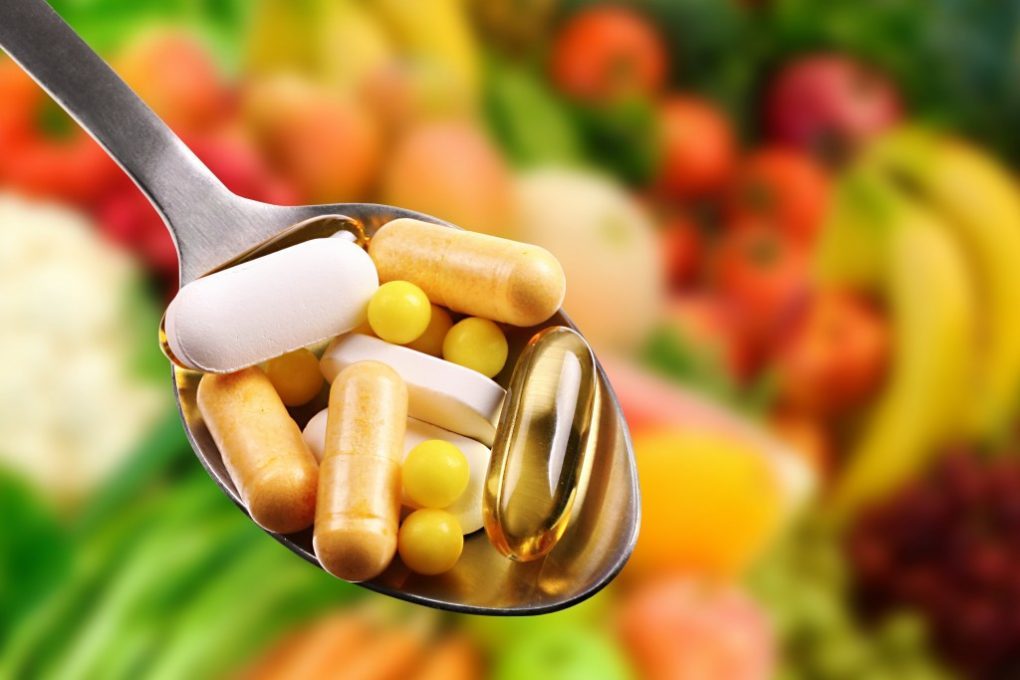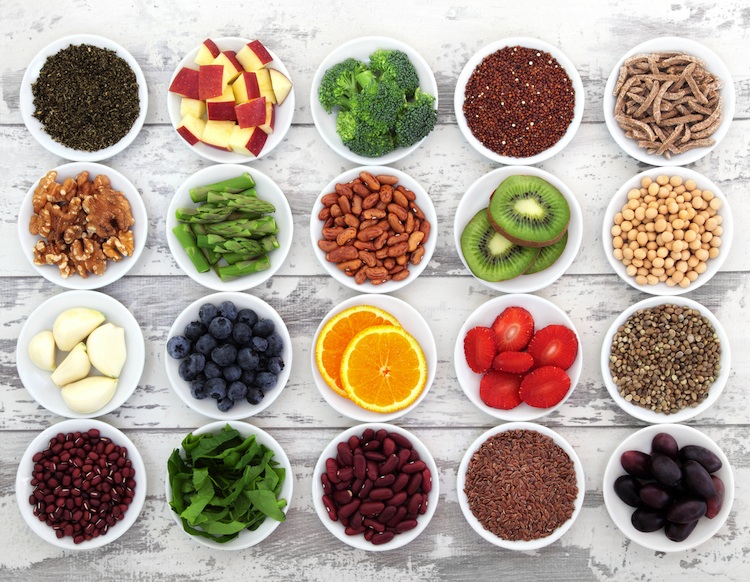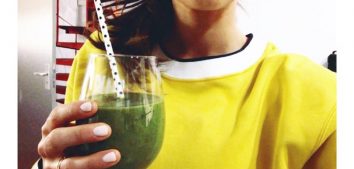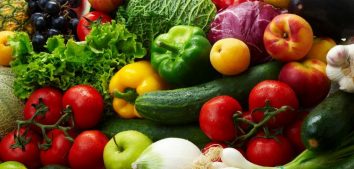
Supplements part II, to take or not to take?
Recently, I have been convincing you that it is worth taking supplements HERE. Today I will discuss which of them, and in what doses it is worth taking, and how it can affect our health.
First of all, we should take care of supplementing the following vitamins and elements:
Vitamin A – Affects healthy skin and eyesight. It supports the immune system and the liver. It should be given in the form of retinol. Excess can cause damage to the liver and bones, so you have to be careful not to overdose. It should be taken in relation to D 2: 1.
Vitamin D – With vitamin D3 deficiency, we dose from 5 to 20,000 units. In order not to overdose, repeat testing after 3 months – excess causes damage to the liver and kidneys.
Supplementation should be proportional to weight and height. In Poland, we provide vitamin D from the sun between April and September, around. 12 – 13 (then the strongest UVB radiation is present). We will provide the right dose for about 15 minutes, without using creams with a protective filter. Before sun exposure, it is advisable to perform a peeling.
Taking vitamin D is also safe in a tanning bed with UVB rays: 3-4 minutes, 3 times a week.
With vitamin D Vitamin K2 should be taken – for 2 thousand. units of vitamin D3 should be 100 micrograms of vitamin K2.
Vitamin B1 – prevents depression, cares for the nervous system and concentration. It is also a valuable support for diabetics, because it converts carbohydrates into energy and improves the overall sugar economy. A safe dose is 100 milligrams, but people with depression are advised to take a lot more units. The use of B1 has no side effects, because the excess is excreted.
Vitamin B2 – also it is not toxic, and its excess as in the case of B1 is excreted. It is not recommended to take it in the second half of the day because it has a stimulating effect and can disrupt sleep.
Witmina B3 – the best is in the form of niacin. It should be taken from 500 -1000 mg. It converts carbohydrates into energy, regulates energy metabolism, blood pressure and blood sugar levels.
Vitamin B4 – choline – removes fat from the liver, improves memory, cures depression and neurosis. 2 to 5 mg a day is recommended.
Vitamin B6 – supports protein metabolism, nervous and immune systems. The best form of taking vitamin B6 is pyridoxal.
Vitamin B8 – the best is in the form of inositol. It is recommended to women who want to get pregnant because they support the endocrine system. It improves the quality of sperm for men. It takes part in the process of building the cell membrane and lipoproteins, and also releases from tension and fears, relaxes and helps in falling asleep. It is recommended to take 10-20 mg daily.
Vitamin B12 – The best form is cobalamin. It supports the formation of erythrocytes (red blood cells) that protect the liver, participate in the synthesis of certain amino acids and nucleic acids, but keep in mind that vitamin B12 also increases appetite. The recommended dose is 100 – 5000 milligrams.
Vitamin C – The best is l-ascorbic acid administered, for example, with chokeberry juice or blackcurrant. We take it several times a day in small doses, preferably through a straw. However, avoid this solution if you have silver teeth fillings, because vitamin C binds heavy metals. Vitamin C takes care of the connective tissue, bones, teeth and blood vessels. Mediates the synthesis of collagen, insulin and adrenocortical hormones. It supports immunity, iron absorption and increases the rate of fatty acid oxidation. Excess is excreted, but admission above 2 g / day results in diarrhea.
Vitamin E – 8 connected with each other tocotrienols compounds. It is recommended to take 500 – 100 mg. Vitamin E supports the normalization of cell growth and their development. It regulates metabolism, lowers cholesterol, increases the use of oxygen, detoxifies and reduces the risk of cardiovascular disease. It should be used in infertility and cancer risks as well as in the disturbance of sugar management.
Vitamin K1 – important especially for kids up to 1 year old. It helps with blood clotting, and its deficiency causes trouble with wound healing, inflammation of the intestine, diarrhea and difficulties in bone mineralization. Overdose causes sweat and a feeling of heat. Occurs in green leafy vegetables.
Vitamin K2 – directs calcium to the bones, which is why it is necessary for calcium supplementation. Healthy intestines produce it. Recommended as MK7, but we should avoid the one made of genetically modified soy. Vitamin K2 is expensive, but it is worth supplementing it, especially in the case of the accumulation of stones in the kidneys or osteoporosis.
Magnesium – calming effect. It absorbs well through the skin and therefore it is easy to supplement it with, for example, baths with Epsom salt.
We usually start the supplementation with magnesium, potassium (300 mg twice a day), vitamin D3, omega 3 acids. During supplementation, we support our intestines and stomach through the use of probiotics and antioxidants. To complete the deficiencies in every cell, supplementation should take years.
Calcium – Dosage of 1000 mg for men and 700 mg for women is recommended.
Calcium builds teeth and bones, regulates blood pressure, is responsible for the proper functioning of the cardiovascular system, nervous system and muscles. Too much calcium can cause osteoporosis – the second most common reason is the lack of silicon, vitamins D3, K2, zinc and magnesium. You will supply calcium with the egg shells and drinking water such as Muszynianka.
Children and older people should not overdo it with excessive calcium, so that it does not accumulate in the kidneys. Magnesium with calcium should be supplemented separately, because they are fighting for the same receptors, so their bioavailability is small if they are served together.
Iron – The recommended doses are 8.7 mg for men and 14.8 for women.
Iron creates erythrocytes, protects against anemia and transports oxygen. Female athlete during menstruation should take more iron to avoid shortages. Excess leads to hardening, stomach discomfort and increased free radical damage. Excellent sources of iron are meat and offal, egg yolks and spinach.
Zinc – Best to take in the form of chelate. The recommended doses are 40 mg for men and 20 mg for women. It provides health of the nervous system, faster wound treatment, improvement of skin condition and cell growth. It is essential in the synthesis of protein and nucleic acids, supports the formation of insulin, ensures muscle contractility and improves mental performance. The best sources are eggs and meat. Zinc supplementation interferes with the absorption of iron and copper.
Potassium – The recommended dose is 300 mg, 2-3 times a day. It plays an important role in the proper functioning of the body. It takes care of regulating blood pressure, transports nutrients to the inside of cells, improves the muscular and nervous system. It oxygenates the brain, and hence mental and concentration processes are better. Potassium should not be combined with zinc.
Selenium – Essential in the first instance of hypothyroidism and Hashimoto. In this case, it has been proven that a helpful daily dose is 200-300 mg, and in some cases to cure up you need up to 2,000 mg.
However, selenium may be toxic, so it is safe to take 100 micrograms a day. However, to compensate for the shortage, it must be increased to 200-300 mg for the first three months. Then it is worth taking a break and then returning to the daily dose of 100 mg.
Iodine – it is forbidden to use it during the first stages of Hashimoto, hypothyroidism and overactive thyroid gland and Graves’ disease. Although there is a strong iodine deficiency in these diseases, it can be administered after previous supplementation of other deficiencies. Iodine is recommended for hypothyroidism, hypertensive disease, sweating, problems with testicles, undigested stomach, cancer and breast fibroma. In the last case, supplementation with iodine in a dose of 0 / 1mg per kg of weight for one year, treats the disease without recurrence. Iodine improves the mood, supports the fight against overweight, heals feelings of cold and pain and adds energy. At dosage 100mg / day, iodine treats obesity.

Antioxidants
Sources of the strongest antioxidants are: dried plums, raisins, blueberries, blackberries, strawberries, raspberries, plums, oranges, red grapes, cherries, kiwi, red grapefruit, kale, spinach, brussel sprouts, alfalfa sprouts, broccoli, red beets, red peppers, onions, sweetcorn and eggplant. In inflammatory conditions such as intestinal leaks or stomach problems, we start with antioxidants intakes, because they kill inflammation. If you are a professional athlete, eat antioxidants in the second half of the day, because they reduce muscle growth (which is also an inflammation).
Glutathione – cysteine + glutamine + glycine
The most important antioxidant. It is produced in the liver and protects the mitochondrion. Every disease means its deficiency. It is consumed every day through stress, glucose jumps, lack of sleep, chemicals, mold, radiation, drugs, cigarettes, electromagnetic fields.
Sources of glutathione are: kale, Brussels sprouts, garlic, onion, curcumin, piperine, cabbage, broccoli, milk thistle, meat, egg yolks.
In athletes, it improves efficiency and strength, and fat burning.
Resveratrol
Contained in red wine, berries and apples. It is very helpful in the treatment of diabetes and weight reduction, but also in the prevention of cancer. It has a very good effect on the circulatory system and prevents the formation of blood clots. It reduces the absorption of LDL cholesterol and protects against atherosclerosis, infarction and coronary heart disease. It is also important that it reduces the risk of Alzheimer’s disease. The effects of overdose include dizziness, nausea, problems with concentration and weight gain.
Curcumin
A powerful antioxidant that treats parasitic diseases, inflammations, ulcers, liver obstruction, and respiratory diseases. For centuries it has also been used to relieve menstrual pain. Curcumin is valued in the prevention and treatment of cancer, the fight against infections and inflammation.
It has a good influence on libido and depression. It is worth using with piperine, which strengthens its action.
Probiotics – their task is to maintain the excellent condition of the bacterial flora. If you have not supplemented them before, start with the one-graft, and only later reach for the multi-graft. It is worth taking them every day because they are sensitive to stress.
After consulting your doctor and dietitian, you will certainly know what your body needs. Taking supplements regularly will give you energy, motivation and willingness to live. If you suffer from fears and depression, it is worth thinking about ADAPTOGENS
Sources:
https://suplementy.gis.gov.pl/
https://ec.europa.eu/food/safety/labelling_nutrition/supplements_en










Comments No Comments
Join the discussion…